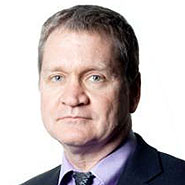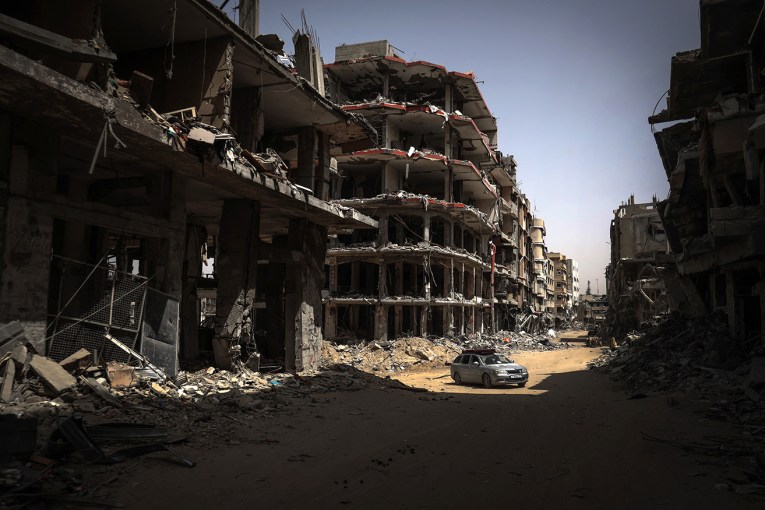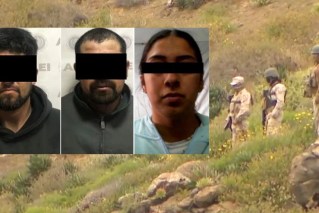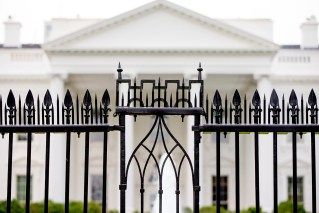Don’t be fooled by this parade of hypocrites

The turnout of world leaders at this week’s massive memorial march in Paris included a dose of brazen hypocrisy from some attendees.
The show of defiance against terrorism was stirring, as was the defence of free speech in the biggest gathering in Paris since liberation in 1944.
• Cartoonist under police watch
• How the Paris shooting have divided Europe

Al Jazeera journalist Peter Greste is a victim of Egypt’s attitude towards freedom of expression.
But it’s a bit steep for the Foreign Minister of Egypt to be marching along, given the treatment meted out to journalists such as Australia’s Peter Greste, who has been in the slammer for more than a year.
The Paris-based Reporters Without Borders said it was “appalled” by the presence at the rally of leaders from countries where journalists and bloggers are systematically persecuted such as Egypt.
Indeed, Egypt is ranked 159th out of 180 countries in RWB’s press freedom index, while other attendees included Russia (148th), Turkey (154th) and United Arab Emirates (118th).
Around the time of the Paris march, a blogger was being publically flogged in Saudi Arabia, a key ally of the US and Western nations in the political whirlpool that is the Middle East.
At least the Chinese official newsagency Xinhua was intellectually consistent, if self-serving, in arguing that the Charlie Hebdo slayings showed the dangers of unfettered free speech.
Charlie Hebdo not for everyone
Now, the attacks on the Charlie Hebdo staff, the police and the customers at the kosher supermarket are appalling and have to be condemned.
But as a journalist, I spent some time agonising over whether other media outlets should all show solidarity by republishing the Charlie Hebdo cartoons which have offended, even outraged, some Muslims.
In the end, I decided that I support the magazine’s right to free speech, but I don’t think that this stance then requires other media outlets to publish the cartoons.
Charlie Hebdo’s satirical take on the world has its roots in the 1968 Paris student uprising and beyond, deep into French culture. That’s their voice, but it’s not necessarily for everyone. The same goes for other media outlets making their own choice on whether to publish the cartoons.
The right’s response is questionable

Freedom of speech goes far deeper than the ‘right to be a bigot’. Photo: AAP
Back in Australia, the Paris attacks have prompted some calls to remove section 18C of the Racial Discrimination Act, which makes it illegal to offend, insult, humiliate or intimidate on the basis of race.
Indeed, the conservative think-tank (and lobby group), the Institute of Public Affairs, reckons that “You are not Charlie” unless you support the repeal of 18C.
But France, too, has “race hate” laws which include a ban on denying the Holocaust took place. And still it is home to a magazine like Charlie Hebdo.
The Federal Attorney-General, George Brandis, used an opinion piece in The Australian to argue that it was an “urgent priority” for the Senate to pass a piece of legislation requiring mandatory retention of metadata.
“After the Martin Place siege and the atrocities in France, no rational person can dispute that the world – and the free and democratic West in particular – faces a profound threat that is likely to be with us for a long time,” Mr Brandis wrote.
Perhaps the AG can explain why mass surveillance would be better than targeted surveillance. He could also explain what he means by metadata and release the details of the data retention scheme.
Freedom of expression a two-way street
More broadly, the Abbott government does not see democratic freedom as including transparency and access to information. Yet it’s a two-way street – not just being able to say what you think or feel.
For its part, Reporters Without Borders argues that freedom of expression and of information will always be the world’s most important freedom.
In my experience, the best use of free speech in the media involves the disclosure of information which is secretive or otherwise hard to get, but which is in the public interest to reveal.
It’s also the hardest.








